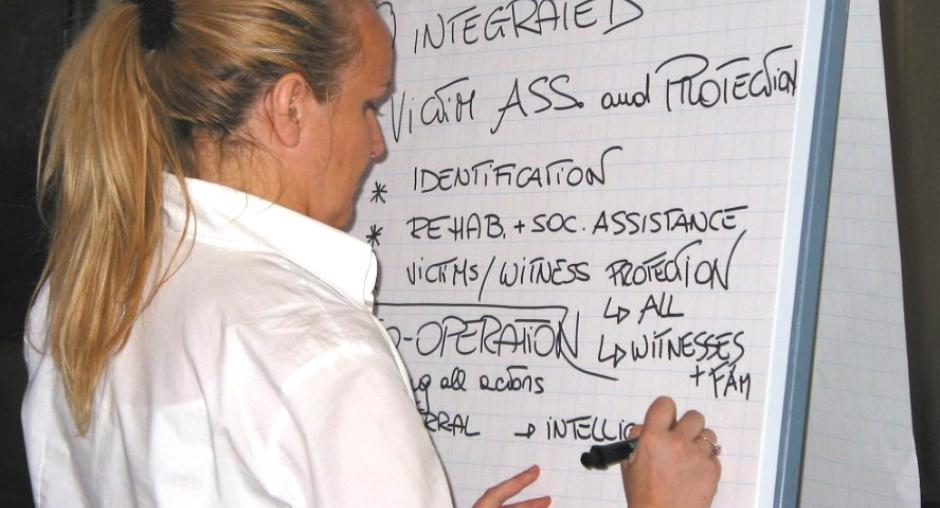Reintegrating Kosovo's domestic human trafficking victims
Kosovo - transfer and destination point
"In previous years, Kosovo was used as a transfer route or destination for people trafficked from abroad," says Alma Begicevic, Human Rights Adviser at the Mission. "We put together standard operating procedures for the repatriation of victims to their countries."
The key steps include identifying victims, providing them with legal advice, ensuring their protection and shelter, and repatriating them.
"The police, UNMIK's Department of Justice, the Ministry of Labour and Social Welfare and partner non-governmental organizations (NGOs) know exactly what needs to be done in these cases," says Begicevic.
Internal trafficking on the rise
However, internal trafficking and the repatriation of victims within Kosovo is a relatively new problem and detailed procedures on how to deal with these cases have not yet been developed. The biggest obstacle, therefore, is the absence of a reintegration mechanism for domestic victims.
So far, the recorded number of internally trafficked victims has exceeded one hundred, 65 of whom are children, according to the Ministry of Labour and Social Welfare. Domestic and international NGOs estimate that the actual number of victims exceeds the official figures several times.
Dealing with foreign victims is in some ways easier than dealing with domestic ones since, once repatriated, they are no longer the responsibility of Kosovo's authorities. Furthermore, the number of foreign victims is decreasing.
Domestic victims, on the other hand, need a system that will help them integrate and adjust back into normal life. This requires a long-term solution from Kosovo's institutions.
Developing a referral mechanism
With the OSCE Mission's assistance, the Ministry, the Centre to Protect Victims and Prevent Trafficking in Human Beings (PVPT) and the International Labor Organization organized the workshop to initiate the creation of a comprehensive referral mechanism that will include all participants and define practical measures needed to help victims reintegrate.
"We are now working on the development of a mechanism that will provide for the protection of Kosovan victims, as well as for their safe and permanent reintegration into homes and society," says Begicevic.
To ensure a co-ordinated effort, the workshop was attended by a number of social workers, NGOs supporting trafficking victims and UNMIK's justice and labour departments.
A comprehensive approach
The Mission has a thorough approach to reintegration. Begicevic outlines the following required steps:
- Identifying victims, extracting them from the criminal environment and providing shelter.
- Arranging for psychiatric care and reintegration into family life. If the victim's family is not an option, appropriate housing must be secured.
- Ensuring that victims can catch up on any missed education.
- Finding economic opportunities to increase former victims' independence.
Selvete Gërxhaliu, Adviser on counter-trafficking and gender-based violence at the OSCE, advises the Ministry of Social Welfare on human trafficking issues. "We are starting to deal with domestic victims," she says. "Given that a majority of them are minors, their successful reintegration is an absolute priority."
Looking ahead
The workshop's participants will produce a resource guide on reintegration services available in Kosovo and will identify missing elements of a full reintegration system. It is expected that by September 2005, there will be a mechanism in place to assist the first referred victims of internal trafficking.
In the pilot phase, reintegration officer positions will be created in municipal centres for social work in Prishtinë/Pristina, Prizren and Mitrovicë/Mitrovica to be filled by experienced NGO representatives. Depending on the success of pilot programmes, the reintegration mechanism will be revised and expanded throughout Kosovo.
To become sustainable, the mechanism will need permanent government funding, while its efficiency and effectiveness will depend on the continued co-operation between government institutions and NGOs.

